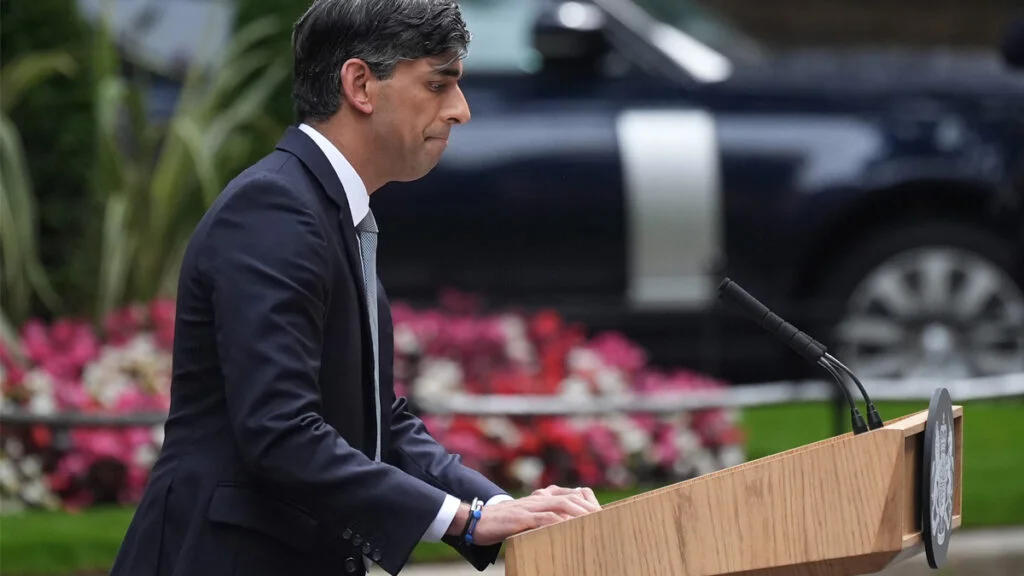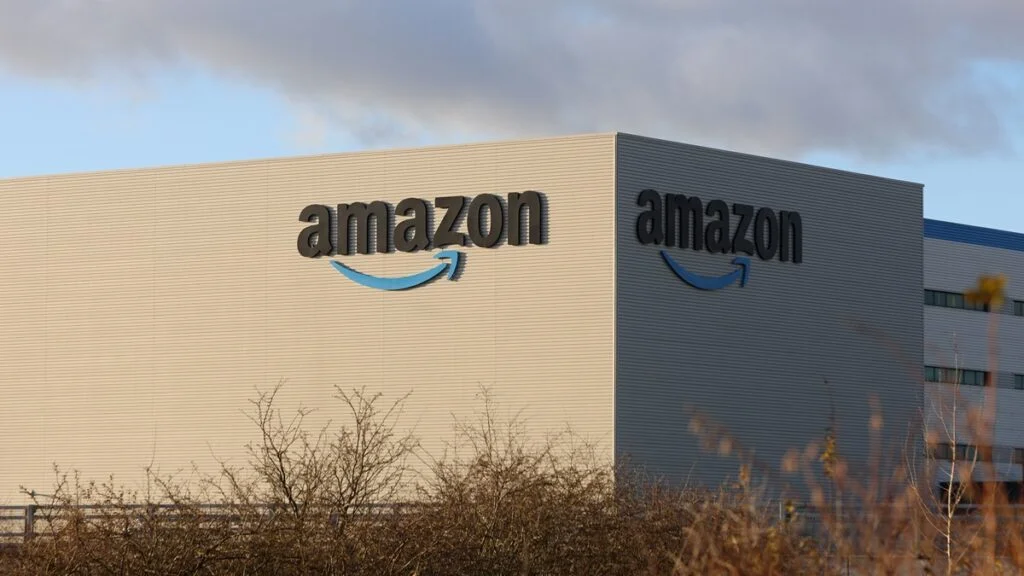
This article is an online version of our Off to Lunch newsletter. Sign up to receive it straight to your inbox here.
And there we have it. A six-week-long crescendo culminating in a forecasted Labour landslide, but one which the markets are positive about. The value of the pound is up 0.3 per cent this morning, while the FTSE 100 has risen 0.5 per cent. James Smith, developed markets economist at ING, says the lack of market volatility is a welcome change after “successive episodes of political turmoil”.
The night was full of drama, from nine cabinet ministers losing to the Lib Dems winning a record number of seats, from former prime minister Liz Truss slinking off the stage without giving a speech to a smiling Nigel Farage becoming an MP at his eighth attempt. But what does UK business think of the results of this election?
Sir Keir Starmer and his party may have a huge majority, but they face a difficult economic situation that needs addressing immediately. His honeymoon period will have a shorter lifespan than the Truss-beating lettuce as UK business waits to see if he can deliver on Labour’s pledge for growth.
Alex Baldock, the boss of Currys, is calling for immediate changes. In particular, he wants to see a fix for the business rates problem. He says: "Retailers are looking for stability, of course, but also for government to provide the conditions for growth, through better skills, infrastructure and planning. Most of all, we must urgently fix the broken, damaging and unfair burden of business rates. We urge the government to consult and act on all of this and, as they do so, we at Currys will engage with them all the way."
Chief executive of Enterprise Nation and Business Leader expert Emma Jones says this focus is what is needed, and the party’s pledged reform of the business rates system is a welcome step. This is echoed by the Federation of Small Businesses. Its policy chair Tina McKenzie says: “The upcoming King’s Speech should include a Small Business Bill to enshrine in legislation much-needed changes to better support small firms and the self-employed. Supporting and growing small businesses is good for jobs, good for communities in all parts of the country, and good for the whole economy”.

The CBI joins the congratulatory chorus but warns that Labour needs to deliver on promises and hit the ground running. Its chief executive Rain Newton-Smith says: “The new prime minister has been given a clear mandate to take the tough decisions on areas like planning reform and boosting grid capacity needed to get the economy firing on all cylinders.”
The British Chambers of Commerce (BCC) stresses what the 51,000 businesses it represents are looking for. “We need to see action from day one on pulling together a coherent industrial strategy for the long term,” says Shevaun Haviland, the director general of the BCC. “Closing the skills gap, growing exports, boosting productivity and harnessing the power of AI won’t happen overnight. Businesses will also want to see early movement on pledges around business rates reform and improving our trade relationship with the EU.”
Russ Shaw, founder of Tech London Advocates, says that the tech sector needs to be the focus for the inbound government. He comments: “The UK must do better at skilling the workforce at home and enabling access for companies to best-in-class talent from around the world, starting with an overhaul of the visa process to better support start-ups and scale-ups.”
This sentiment is echoed on the venture capital side, with Balderton Capital general partner Suranga Chandratillake saying: “We need a founder-friendly regulatory landscape and access to capital to ensure that entrepreneurs continue to start and scale their businesses here in the UK.”
Access to finance and a reform of the British Business Bank is an important focus says, Bibby Financial Services CFO Theo Chatha: “We would urge this government to develop a new scheme that includes input from a wider array of SME funders and commercial finance brokers, to ensure that the initiative delivers for SMEs. This would ensure Labour gives SMEs more choice and agency over how they finance themselves to grow and thrive."
What is your reaction to the general election result? What will it mean for your business? And what do you think the priority should be for the new government? We want to hear from you. Email your thoughts to editorial@businessleader.co.uk.
Business Question
Guess the year
- New Year's Day is celebrated as a public holiday for the first time
- A large miners' strike leads to the implementation of a three-day workweek to conserve electricity
- General elections were held in Feb and October
- The Health and Safety at Work Act is introduced
- McDonald's opens its first UK restaurant
The answer can be found at the bottom of the page.
Business in Brief
Everything you need to know
1. Banking trade body UK Finance says that start-ups should have to return government subsidies and tax breaks if they decide to list abroad. It argues that companies in receipt of government help should have a “two-way commitment” amid concerns about the number of firms listing on foreign stock markets. However, business groups have raised concerns at the idea, with lobby group Startup Coalition calling it “dumb” and “dangerous”. You can read more here.
2. A survey from the Bank of England suggests inflationary pressures eased in June. In a survey of CFOs, 3.8 per cent said their firms raised prices in June, while 3.6 per cent said they expect to raise prices in the year ahead. Both figures are down from the previous month and at their lowest level since 2021. Wage also edged lower, to 4 per cent. You can read more here.
3. Inflationary pressures may be coming down, but households are still concerned about costs, in particular mortgages, according to a survey from Halifax. Its latest data shows the average UK house price fell by 0.2 per cent in June, compared to May, but was up 1.6 per cent year on year. You can read more here.
4. Lobby group UK Steel has warned that the high price of electricity in Britain could hinder the country’s efforts to switch to greener technology. UK companies paid nearly £66 per megawatt hour for wholesale electricity in the second quarter of this year, more than double what firms in France and Spain pay, with the gap at its widest since at least 2015. You can read more here.
5. Cineworld is reportedly considering closing 100 of its UK cinemas and negotiating rents on 50 more as it looks to restructure. Sky News reports that proposals are expected to be formally outlined to creditors, including landlords, in the coming weeks. The firm went into Chapter 11 bankruptcy protection in 2022 and delisted from the London Stock Exchange last year. You can read more here.
Business Quotes
Inspiration from leaders
"Courage doesn’t always roar. Sometimes courage is the quiet voice at the end of the day saying, 'I will try again tomorrow'"
- Mary Anne Radmacher
Business Thinker
Ideas on the future of business and leadership
1. ? What happened to the artificial intelligence revolution? ?
2. ? How much cash would it take for you to quit your job? ?
3. ? Shein, Temu and the Parcel Wars ?
And finally...

It's hard to imagine a world without Amazon. The company has its fingers in everything from video and music streaming to in-home camera systems to smart speakers to cloud storage – and of course e-commerce.
Founded by Jeff Bezos in Washington 30 years ago today, the company started out as an online marketplace for books but soon expanded to sell a huge range of products. So much so that it became known as 'The Everything Store'.
It is now the second-largest private employer in the US and the global leader in R&D spending. Just a few days ago it reached a $2tn market cap for the first time, with shares up 27.5 per cent this year. It has been criticised on a number of fronts, including over data collection, tax avoidance and anti-competitive practices, but there's no doubting the business and economic impact it has had.
To mark its anniversary, Quartz gives us a "brief history" of the company. Others are looking forward. You can read the BBC's take on what is next for Amazon here, while The Economist dives into the factors that will define its next decade here.
The answer to today's Business Question is 1974.
Related and recommended
Richard Harpin, the founder of HomeServe and Growth Partner and owner of Business Leader, answers your burning business questions
Contestants from The Apprentice reveal the fundamental business lessons they learned from taking part in the TV show
From global talent pools to AI-powered documentation, a work-from-anywhere model is a new way of thinking about productivity, innovation and teamwork
The story of how cycling brought Business Leader member John Readman together with his co-founder and investors




